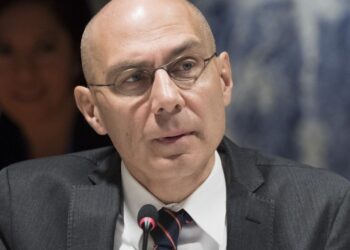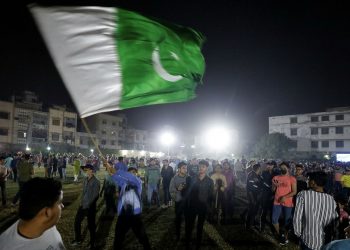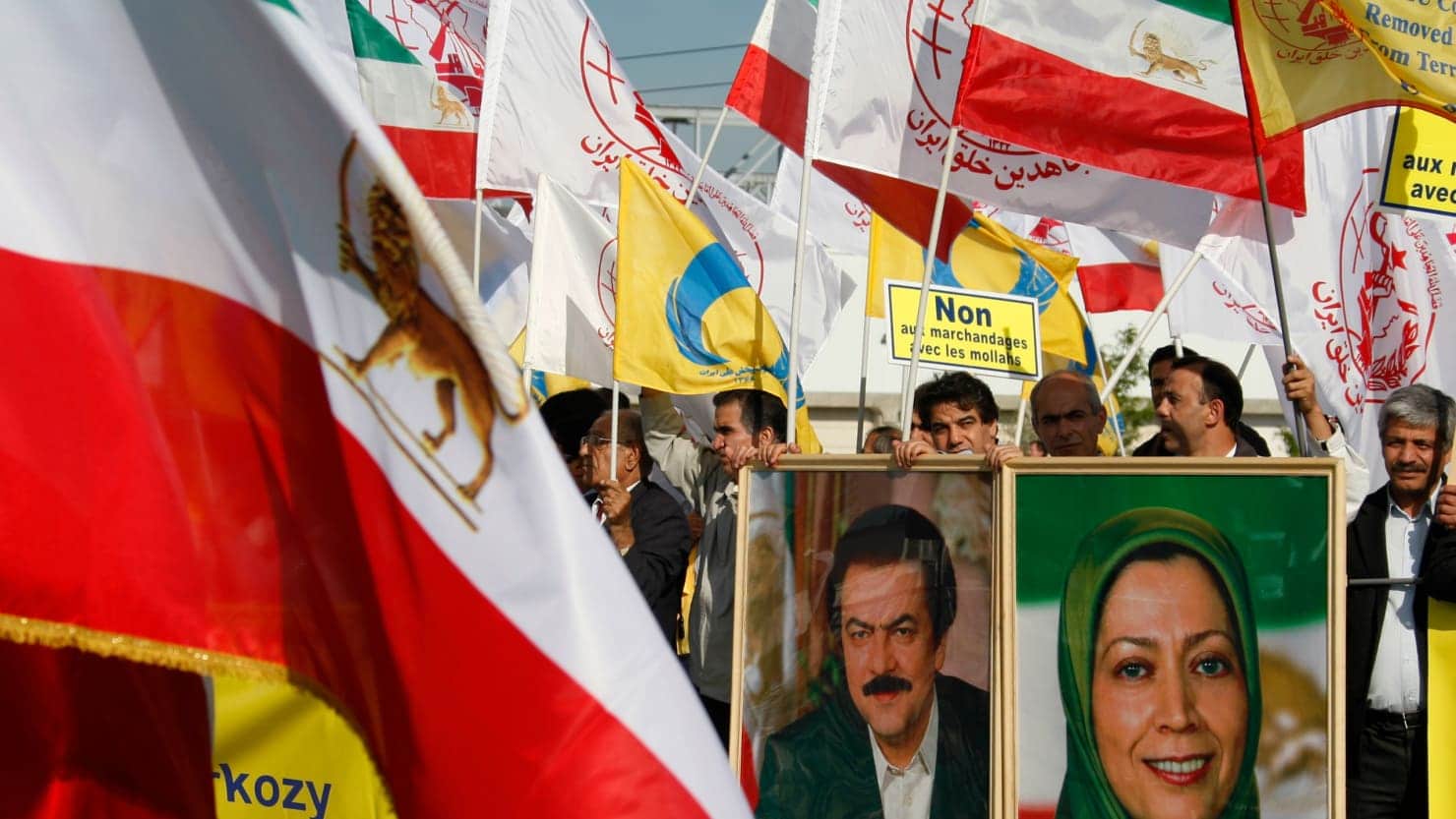Human Lives Human Rights: Since 2004, numerous statements from U.S. officials and other anonymous sources have alleged that private individuals and organizations in Saudi Arabia have funded insurgent operations in Iraq. Insurgent recruiters and facilitators prefer to deal with Saudi young men because Saudis provide for their own expenses and often personally finance insurgent operations. The “funding for the Sunni insurgency [in Iraq] comes from private individuals within Saudi Arabia and the Gulf States.” Iraqi officials have called on Saudi Arabia and other neighboring countries to do more to restrict financial networks operating in their countries from supporting insurgents in Iraq.
Saudi authorities initially denied the claims, but have since acknowledged that Saudi citizens have traveled to Iraq or otherwise offered material support to the insurgency. Saudi officials claim to have taken action against suspected insurgent financiers. The Saudi government administers official aid programs in Iraq under the supervision of the Saudi Committee for the Relief of the Iraqi People and the Saudi Red Crescent Society. In May 2003, the Saudi government established an official government bank account, Unified Account Number 111, to consolidate public and private donations in support of the Iraqi people.29 Saudi press reports describing the operations of the Committee and the Red Crescent Society indicate that numerous shipments of food aid and medical supplies have been delivered across Iraq since April 2003, including shipments to the former-insurgent stronghold of Fallujah during the summer of 2004. Other Saudi based charities, including the International Islamic Relief Organization (IIRO) have also delivered aid to Iraq, including to Fallujah and other areas of fluctuating insurgent activity. According to press reports, the IIRO maintained collection accounts in two Saudi banks where donations could be made as recently as December 2004. U.S. officials have expressed general concerns about the IIRO’s operations and questioned its exclusion from Saudi charitable account regulations.
Financing Palestinian Organizations
Support for Palestinian causes and the provision of humanitarian aid to Palestinians has long been an important component of Saudi foreign policy, and many Saudis identify strongly with the Palestinian people and view support for Palestinian causes as a religious, cultural, or, in some cases, political obligation. Repeated allegations made by Israeli and Western sources have contended that Saudi support for Palestinian institutions and individuals has directly or indirectly supported Palestinian terrorist groups, although public reporting has not conclusively linked official Saudi government support to Palestinian terrorist organizations. Some reports suggest that Hamas maintains a significant fund-raising infrastructure inside Saudi Arabia.
Since the early 1990s, there have been unsubstantiated reports of Saudi public and private assistance to the fundamentalist Islamic Resistance Movement (Hamas), which the U.S. government has designated as a foreign terrorist organization. In its annual report on terrorism for the year 2001 (Patterns of Global Terrorism, 2001), the State Department noted that Hamas received funding from “private benefactors in Saudi Arabia and other moderate Arab states.” The 2002 and most 2003 editions of the report did not mention Saudi Arabia as a specific source of funding for Hamas. The State Department’s 2005 Country Reports for Terrorism (released in March 2006) indicated that “private benefactors in Saudi Arabia and other Arab states” remained a primary source of funding for Hamas. The 2006 report did not cite Saudi Arabia specifically and the 2007 report stated that Hamas “fundraising takes place in the Gulf countries.”
Saudi Arabia, like other Arab states, recognizes the Palestine Liberation Organization (PLO) as the legitimate representative of the Palestinian people. A 2002 Saudi government report stated that overall government and private aid to Palestinian causes had reached $2.61 billion. Following the January 25, 2006, elections for the Palestinian Legislative Council in which Hamas won a majority of the votes, Saudi officials indicated that funding support for the Palestinian Authority would continue. According to press reports, Saudi officials promised $20 million to cover immediate needs on the part of the Palestinian Authority. On March 19, 2006, Prince Saud al Faisal stated the Saudi position, saying that “humanitarian assistance is not given to a government. It is given to a people …” to help them deal with a difficult humanitarian situation. Saudi Arabia made significant efforts to support a Palestinian unity government prior to the intra-Palestinian violence of early 2007, and, in December 2007, Saudi Arabia pledged between $500 and $750 million to the Palestinian Authority over three years.
Saudi press reports indicate that the Al Quds Intifada Committee consolidated the proceeds of its fund-raising efforts along with public and private donations in support of Palestinian causes in national, government-sponsored unified accounts established in a number of Saudi banks. In May 2002, Israeli officials released a report that alleged that the Saudi Committee for the Support of the Al Quds Intifada had “transferred large sums of money to families of Palestinians who died in violent events, including notorious terrorists.” This alleged financial support encouraged Palestinian terrorism by easing the potential burden on the families of attackers. However, Saudi officials called the allegations “baseless and false,” and stated “unequivocally that Saudi Arabia does not provide financial support to suicide bombers or their families.
The Al Quds Intifada Committee website, maintained in the name of “the Saudi Committee for Relief of the Palestinian People,” once contained over 40,000 transaction records that featured the names individuals who received humanitarian aid and financial support from the Committee. The records portion of the Committee website was deactivated in March 2005. The website states that “many accounts were opened for the harmed persons at the Arab Bank branches in the Palestinian territory, and fixed aids [i.e.; donations] were transferred to the harmed people in their respective accounts.” One of the Committee’s programs supported Palestinian families whose primary breadwinners were killed by Israeli forces or under other violent circumstances during the uprising. Online records for this program contained the names of deceased individuals, transaction numbers, the date of their deaths, their home towns, and the circumstances in which they were killed. The Committee’s description of the program indicated that payments of 20,000 SR [$5,300] were transmitted to the family members of these individuals in their names following their death.
Of the 1,300 names contained in the records for this specific Committee program, over 60 matched or closely resembled the names of known Palestinian militants who carried out attacks on Israeli military personnel and civilians from October 2000 to March 2002. These individuals included suicide bombers and gunmen who were killed during actual and attempted attacks inside Israel and the Palestinian territories. Most of the Committee records assigned to individuals whose names matched or closely resembled those of suicide attackers listed “assassination” as the cause of death—however other records credited “martyrdom.” A handful of these records indicated that the individuals they referred to were killed during a “martyrdom operation.”


















